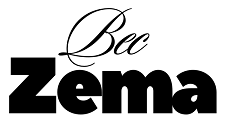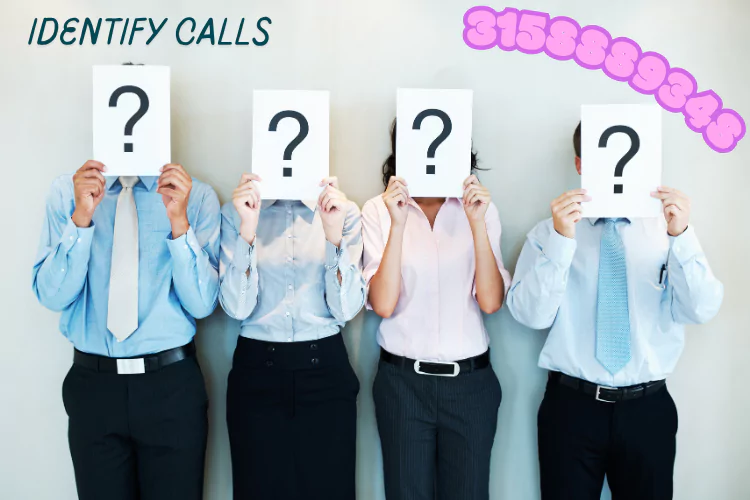Best CRM for Charities Empowering Nusaker: Guide to Transforming Your Nonprofit
Modern nonprofit organizations face unique challenges in managing donor relationships, tracking volunteer activities, and measuring community impact. The best CRM for charities empowering nusaker represents a game-changing solution that combines traditional customer relationship management with specialized nonprofit functionality. This comprehensive guide explores how the right CRM system can revolutionize your charity’s operations, boost fundraising efforts, and create lasting connections with supporters.
Key Takeaways:
- Understanding CRM basics for nonprofit organizations
- Identifying essential features for charity-specific needs
- Comparing top CRM solutions for nonprofits
- Implementation strategies for maximum impact
- Cost-effective options for organizations of all sizes
Understanding CRM Systems for Nonprofit Organizations
Customer Relationship Management (CRM) systems have evolved far beyond their original business applications. For charities, these platforms serve as comprehensive databases that track donor interactions, volunteer schedules, fundraising campaigns, and community outreach efforts. The best CRM for charities empowering nusaker goes beyond basic contact management to provide sophisticated tools for relationship building and impact measurement.
Modern nonprofit CRMs integrate seamlessly with fundraising platforms, email marketing tools, and social media channels. They offer specialized features like donation tracking, grant management, and volunteer coordination that traditional business CRMs simply cannot match. These systems help organizations maintain detailed records of supporter preferences, giving history, and engagement levels, enabling more personalized communication and targeted fundraising strategies.
The transition from manual record-keeping to automated CRM systems represents a significant leap forward for most charities. Organizations can now track every interaction with supporters, from initial contact through long-term engagement, creating a comprehensive picture of their community impact and fundraising effectiveness.
Essential Features Every Charity CRM Should Have
Donor Management Capabilities
The foundation of any effective charity CRM lies in its donor management features. The best CRM for charities empowering nusaker should provide comprehensive donor profiles that include giving history, communication preferences, and engagement levels. These profiles enable organizations to segment donors based on various criteria, facilitating targeted fundraising campaigns and personalized outreach efforts.
Advanced donor management includes automated acknowledgment systems, recurring donation handling, and integration with major gift tracking. The system should also support pledge management, allowing organizations to track commitments over time and send appropriate reminders. Integration with tax reporting features ensures donors receive accurate documentation for their contributions.
Volunteer Coordination Tools
Effective volunteer management requires specialized tools that go beyond basic contact information. The ideal CRM should include volunteer scheduling systems, skill tracking, and hour logging capabilities. These features help organizations match volunteers with appropriate opportunities while maintaining accurate records for recognition and reporting purposes.
Advanced volunteer management includes automated communication systems for event reminders, thank-you messages, and opportunity announcements. The system should also support background check tracking, training records, and performance evaluations, ensuring organizations maintain high standards while supporting volunteer development.
Top CRM Solutions for Nonprofit Organizations
Salesforce Nonprofit Cloud
Salesforce Nonprofit Cloud stands out as a comprehensive solution specifically designed for charitable organizations. This platform offers extensive customization options, allowing organizations to tailor the system to their unique needs. The best CRM for charities empowering nusaker often includes Salesforce due to its robust feature set and strong integration capabilities.
The platform provides advanced analytics and reporting tools that help organizations track fundraising performance, measure program effectiveness, and demonstrate impact to stakeholders. Its automation features streamline routine tasks, freeing staff to focus on mission-critical activities. The system also offers excellent mobile accessibility, enabling staff to access information and update records from anywhere.
Bloomerang
Bloomerang focuses specifically on donor retention, making it an excellent choice for organizations looking to build long-term relationships with supporters. The platform’s user-friendly interface makes it accessible to staff members with varying technical skills. Its reporting capabilities provide valuable insights into donor behavior and campaign performance.
The system includes robust email marketing tools, event management features, and online giving capabilities. Bloomerang’s emphasis on donor retention metrics helps organizations identify at-risk supporters and implement targeted retention strategies. The platform also offers excellent customer support and training resources.
DonorPerfect
DonorPerfect provides a comprehensive fundraising solution with strong donor management capabilities. The platform offers extensive customization options and integrates well with popular fundraising tools and payment processors. Its reporting features provide detailed insights into fundraising performance and donor engagement.
The system includes advanced segmentation tools that help organizations create targeted campaigns based on donor characteristics and giving history. DonorPerfect also offers robust grant management features, making it suitable for organizations that rely heavily on foundation funding.
Implementation Strategies for Maximum Impact
Planning Your CRM Migration
Successful CRM implementation requires careful planning and preparation. Organizations should begin by conducting a thorough assessment of their current systems and processes. This evaluation helps identify specific needs and requirements that the new CRM must address. The best CRM for charities empowering nusaker should align closely with organizational goals and operational workflows.
Data migration represents one of the most critical aspects of CRM implementation. Organizations must clean and organize existing data before transferring it to the new system. This process often reveals inconsistencies and duplicates that need resolution. Proper data preparation ensures the new CRM starts with accurate, usable information.
Staff training plays a crucial role in successful CRM adoption. Organizations should develop comprehensive training programs that address different user roles and skill levels. Ongoing support and refresher training help ensure long-term success and maximize return on investment.
Customization and Integration
The most effective CRM implementations involve significant customization to match organizational workflows and reporting needs. The best CRM for charities empowering nusaker should offer flexible customization options that don’t require extensive technical expertise. Organizations should prioritize features that directly support their mission and fundraising strategies.
Integration with existing tools and platforms streamlines operations and reduces data entry requirements. Common integrations include email marketing platforms, accounting software, and online donation systems. These connections ensure data consistency across all organizational systems and improve overall efficiency.
Cost Considerations and Budget Planning
Understanding Pricing Models
CRM pricing varies significantly based on features, user count, and support levels. Many providers offer nonprofit discounts or special pricing tiers that make advanced features more accessible. The best CRM for charities empowering nusaker should provide excellent value while staying within budget constraints.
Organizations should consider both upfront costs and ongoing expenses when evaluating CRM options. Implementation costs may include data migration, customization, and training expenses. Ongoing costs typically include monthly or annual subscription fees, additional user licenses, and support services.
| CRM Solution | Starting Price | Best For | Key Features |
|---|---|---|---|
| Salesforce Nonprofit Cloud | $36/user/month | Large organizations | Advanced customization, robust analytics |
| Bloomerang | $99/month | Donor retention focus | User-friendly, retention metrics |
| DonorPerfect | $89/month | Comprehensive fundraising | Grant management, extensive integrations |
| NeonCRM | $50/month | Mid-sized nonprofits | Event management, membership tracking |
Return on Investment Analysis
Calculating CRM ROI requires considering both direct cost savings and improved fundraising performance. The best CRM for charities empowering nusaker should deliver measurable improvements in donor retention, volunteer engagement, and operational efficiency. Organizations typically see ROI through reduced administrative costs, improved campaign performance, and increased donor lifetime value.
Improved data accuracy and accessibility often result in better decision-making and more effective resource allocation. Advanced reporting capabilities help organizations identify trends and opportunities that might otherwise go unnoticed. These insights can lead to significant improvements in fundraising effectiveness and program impact.
Measuring Success and Performance
Key Performance Indicators
Effective CRM implementation requires ongoing monitoring and evaluation. Organizations should establish clear metrics that align with their mission and goals. The best CRM for charities empowering nusaker should provide comprehensive reporting tools that track these important indicators.
Common nonprofit KPIs include donor retention rates, average gift size, volunteer engagement levels, and campaign ROI. Organizations should also track operational metrics like data accuracy, user adoption rates, and system performance. Regular monitoring helps identify areas for improvement and ensures the CRM continues to meet organizational needs.
Continuous Improvement Strategies
CRM optimization is an ongoing process that requires regular attention and refinement. Organizations should schedule periodic reviews to assess system performance, user satisfaction, and goal achievement. These evaluations help identify opportunities for improvement and additional training needs.
User feedback plays a crucial role in CRM optimization. Staff members who use the system daily often have valuable insights into potential improvements and feature requests. Regular surveys and feedback sessions help organizations maximize their CRM investment and ensure long-term success.
Security and Data Protection
Protecting Donor Information
Data security represents a critical concern for nonprofit organizations that handle sensitive donor information. The best CRM for charities empowering nusaker should include robust security measures that protect against unauthorized access and data breaches. Organizations must also comply with relevant privacy regulations and industry standards.
Essential security features include encrypted data storage, secure access controls, and regular security updates. Organizations should also implement strong password policies and multi-factor authentication to protect user accounts. Regular security audits and vulnerability assessments help identify and address potential risks.
Compliance and Regulations
Nonprofit organizations must comply with various regulations regarding data protection and privacy. The CRM system should support compliance with laws like GDPR, CCPA, and other relevant regulations. Proper compliance protects both the organization and its supporters while maintaining trust and credibility.
Documentation and audit trails play important roles in regulatory compliance. The CRM should maintain detailed records of data access, modifications, and user activities. These records help demonstrate compliance during audits and investigations while supporting internal security monitoring efforts.
Mobile Accessibility and Remote Work
Supporting Distributed Teams
Modern nonprofit organizations often rely on distributed teams that include remote staff, volunteers, and board members. The best CRM for charities empowering nusaker should provide excellent mobile accessibility and remote work capabilities. Mobile-responsive interfaces ensure users can access critical information and perform essential tasks from any device.
Cloud-based CRM solutions offer significant advantages for distributed teams. These systems provide real-time access to current information regardless of location or device. Automatic synchronization ensures all team members work with the most up-to-date data, reducing errors and improving collaboration.
Offline Capabilities
Event management and field work often require offline access to CRM data. The ideal system should provide offline capabilities that allow users to access critical information and enter data without internet connectivity. Automatic synchronization when connectivity returns ensures data consistency and prevents information loss.
Mobile applications should include essential features like contact lookup, donation recording, and volunteer check-in capabilities. These features enable staff to maintain productivity during events and field activities while ensuring accurate record-keeping.
Integration with Fundraising Platforms
Streamlining Donation Processing
Effective CRM integration with fundraising platforms eliminates manual data entry and ensures accurate donation recording. The best CRM for charities empowering nusaker should connect seamlessly with popular donation processing systems, automatically importing contribution data and updating donor records.
Real-time integration provides immediate visibility into fundraising performance and donor activity. This connectivity enables organizations to respond quickly to donation patterns and implement timely follow-up strategies. Automated acknowledgment systems ensure donors receive prompt recognition for their contributions.
Campaign Management
Integrated campaign management tools help organizations plan, execute, and evaluate fundraising initiatives. The CRM should support multiple campaign types, including direct mail, email marketing, and peer-to-peer fundraising. Comprehensive tracking capabilities provide insights into campaign performance and ROI.
Advanced campaign features include A/B testing capabilities, automated workflows, and personalized messaging. These tools help organizations optimize their fundraising strategies and improve donor engagement. Integration with social media platforms extends campaign reach and enables multi-channel fundraising approaches.
Training and Support Resources
Onboarding and Initial Training
Successful CRM implementation requires comprehensive training programs that address different user roles and skill levels. The best CRM for charities empowering nusaker should come with extensive training resources and support options. Initial training should cover basic navigation, key features, and common workflows.
Organizations should develop role-specific training programs that focus on relevant features and responsibilities. Executive users may need strategic reporting training, while development staff require detailed donor management instruction. Administrative users benefit from system configuration and maintenance training.
Ongoing Support and Development
CRM success depends on ongoing support and continuous learning. Providers should offer multiple support channels including phone, email, and chat support. Comprehensive knowledge bases and video tutorials help users find answers quickly and independently.
Regular webinars and training sessions keep users updated on new features and best practices. User communities and forums provide opportunities for peer learning and problem-solving. These resources help organizations maximize their CRM investment and stay current with evolving capabilities.
Future-Proofing Your CRM Investment
Scalability and Growth Planning
Organizations should select CRM solutions that can grow with their needs over time. The best CRM for charities empowering nusaker should offer flexible pricing and feature options that accommodate organizational growth. Scalable systems prevent the need for costly migrations as organizations expand their operations.
Future-proofing also involves selecting providers with strong track records and ongoing development commitments. Regular feature updates and improvements ensure the system remains current with evolving nonprofit needs and technological advances. Long-term partnerships with CRM providers support sustained success and growth.
Emerging Technologies and Trends
Artificial intelligence and machine learning are increasingly important in CRM systems. These technologies enable predictive analytics, automated insights, and personalized recommendations. Organizations should consider how emerging technologies might benefit their operations and select systems that incorporate these capabilities.
For more insights on choosing the right technology solutions for your organization, explore comprehensive reviews and comparisons at Beczema.
Conclusion
Selecting the best CRM for charities empowering nusaker represents a critical decision that can transform your organization’s effectiveness and impact. The right system provides comprehensive donor management, volunteer coordination, and fundraising tools that streamline operations and improve supporter relationships. Success depends on careful planning, proper implementation, and ongoing optimization.
Modern CRM solutions offer powerful capabilities that were once available only to large corporations. Nonprofit organizations can now access sophisticated analytics, automation tools, and integration capabilities that significantly improve their operational efficiency and fundraising effectiveness. The key lies in selecting a system that aligns with organizational goals, budget constraints, and technical capabilities.
Investment in a quality CRM system pays dividends through improved donor retention, increased fundraising efficiency, and better program outcomes. Organizations that successfully implement and optimize their CRM systems typically see significant improvements in their ability to fulfill their mission and serve their communities. The future of nonprofit management lies in leveraging technology to create stronger relationships and achieve greater impact.
Frequently Asked Questions
Q: What makes a CRM system suitable for charities?
A: Charity-specific CRM systems include features like donation tracking, volunteer management, grant administration, and nonprofit-specific reporting. They often offer discounted pricing and specialized support for nonprofit organizations.
Q: How much should a nonprofit budget for CRM implementation?
A: CRM costs vary widely, from $50-$500+ per month depending on features and user count. Organizations should budget for implementation costs, training, and ongoing support in addition to subscription fees.
Q: Can small nonprofits benefit from CRM systems?
A: Yes, many CRM providers offer solutions specifically designed for small nonprofits with limited budgets and technical resources. These systems provide essential features without overwhelming complexity.
Q: How long does CRM implementation typically take?
A: Implementation timeframes range from a few weeks to several months, depending on system complexity, data migration requirements, and customization needs. Proper planning and preparation can significantly reduce implementation time.
Q: What should organizations do if their current CRM isn’t meeting their needs?
A: Organizations should conduct a thorough needs assessment, evaluate alternative solutions, and create a migration plan. Professional consultation can help ensure a smooth transition to a more suitable system.
Q: How important is mobile access for nonprofit CRM systems?
A: Mobile access is crucial for modern nonprofit operations, enabling staff to access information and update records during events, meetings, and field work. Most quality CRM systems now include mobile-responsive interfaces or dedicated apps.
Q: What kind of support should organizations expect from CRM providers?
A: Quality CRM providers offer multiple support channels including phone, email, and chat support. They should also provide comprehensive training resources, documentation, and ongoing educational opportunities.
Q: Can CRM systems integrate with existing nonprofit tools?
A: Yes, most modern CRM systems offer extensive integration capabilities with popular nonprofit tools including email marketing platforms, accounting software, and online donation systems. These integrations streamline operations and reduce data entry requirements.







